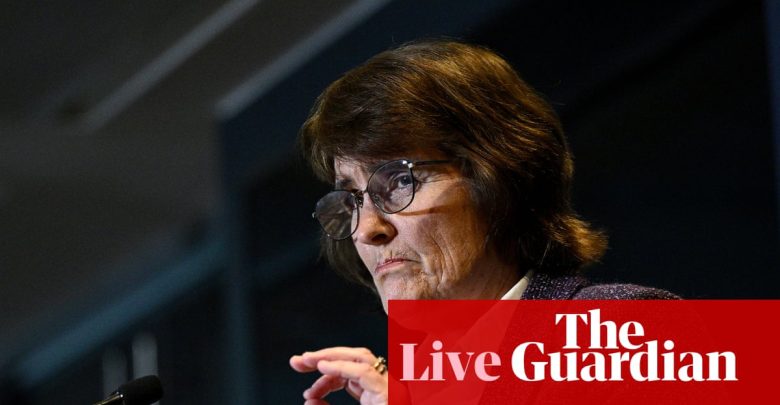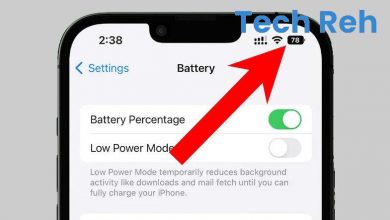Australia news live: Westpac and CBA pass on cut after RBA reduces cash rate; Sussan Ley says Coalition would revoke Palestine recognition | Australia news

Westpac and CBA pass on rate cut
Westpac, the Commonwealth Bank and Macquarie have all announced they will pass on today’s interest rate cut to their customers.
Westpac said it was going to pass on the -0.25% rate adjustment to its variable home loan interest rates effective Tuesday, 26 August.
The Commonwealth Bank says all home loan variable rate changes relating to today’s rate cut will be effective 22 August 2025.
Macquarie, meanwhile, says the cut will hit its variable home loan rates just three days from now, on Friday 15 August.
Key events
The Albanese government’s decision to recognise the state of Palestine has “pushed back the prospect” of the state ever being created, Liberal senator James Paterson has said.
He told Afternoon Briefing:
The Albanese government’s decision to recognise a Palestinian state is not the same as the creation of a Palestinian state; that would require the agreement of Israel. I think what the Government has done has made that even less likely than it ever has been, they’ve pushed back that prospect, it’s an incredibly remote one.
Asked if the Coalition would revoke that recognition, Paterson said:
Yes, just as this Government revoked the previous government’s recognition of West Jerusalem as Israel’s capital; new governments elected on a different political philosophy can change our foreign policy, and we would change it.
Fortnite creator scores some wins in major case against Apple and Google

Josh Taylor
Epic Games, the creator of the popular video game, Fortnite, has won a partial victory against Apple and Google in the Australian federal court over the restrictions in their app stores and in-app payment options.
Fortnite was kicked off the Apple and Google app stores in 2020 after Epic Games offered its own in-app payment system that bypassed the one used by the platforms, and cut out the fees Apple and Google receive for in-app payments.
Fortnite sued the two companies in Australia and other jurisdictions as a result. In the Australian case, Epic alleged that Apple’s control over in-app purchases in the Fortnite app were a misuse of market power, which had substantially lessened competition in app development. The company alleged Google harmed app developers and consumers in Australia by preventing choice over app distribution and in-app payments on Android devices.
Federal court justice Jonathan Beach found Apple had engaged in conduct likely to diminish competition over preventing side-loading of apps on iOS, and by preventing alternative payment methods for digital purchases. For Google it was found for the similar Google Play billing system, and over Google’s Project Hug, a project that allegedly saw developers enticed to keep their apps in the Play Store.
Other claims from Epic did not succeed.
Two class action cases arguing that Apple and Google overcharged developers for in-app payments were successful, but the difference in what they would have otherwise charged had there been more competition will be decided later.
Beach spent an hour and a half reading through a summary of his reasons in the four cases. The full judgment – expected to be around 1,000 pages long to cover all cases – will not be released until redactions are made. Orders on relief will be decided at a later date once lawyers for all parties have had time to digest the ruling.
Shadow finance minister, Liberal James Paterson, has told ABC’s Afternoon Briefing that he believes the reason so many journalists were asking RBA governor Michele Bullock about productivity, rather than the interest rate reduction, was because “the Government has admitted this is a problem”.
Paterson said:
They have recognised it is a problem because it is so closely linked to living standards and living standards did fall over the government’s first term, as did productivity – in fact we went back to 2016 levels of productivity growth.
So that is a crisis for our living standards, for our wealth as a country, and we will go backwards unless we fix this. And the fact that the RBA has lowered their expectations for productivity growth is effectively a vote of no confidence in the Government’s economic agenda, they have no a plan to fix this problem and I hope they can come up with one at their round-table but I am really worried they won’t.

Tom McIlroy
Labor signals plan for road-user charging rules
The treasurer, Jim Chalmers, has signalled Labor could move forward with a plan for road-user charging rules as soon as next week’s productivity roundtable, saying Labor had flagged such a change before the federal election.
Labor has been working on plans for charges to cover electric vehicles with state and territory governments ahead of the three-day summit in Canberra next week.
Budget revenue collected from fuel excise has been falling as drivers increasingly shift to electric vehicles. Victoria designed rules for a 2c per kilometre charge on EV users in a 2023 plan, but the tax was overruled by the high court.
The prime minister, Anthony Albanese, said last week the government was only considering immediately moving forward with tax plans considered by voters ahead of the 3 May election.
Chalmers said on Tuesday road-user charging met that standard, because the government had flagged its plans in the last parliament:
We said before the last election that this was an area we’re working on with the states and territories and in parts of our political opposition, there’s a sense of bipartisanship as well in dealing with this challenge.
Really for at least a year or two, we have said publicly that this is on the agenda, and so we will continue that work.
He said he expected state treasurers to raise road-user charging rules at a meeting on Friday, billed as a lead in meeting for next week’s roundtable.
Westpac and CBA pass on rate cut
Westpac, the Commonwealth Bank and Macquarie have all announced they will pass on today’s interest rate cut to their customers.
Westpac said it was going to pass on the -0.25% rate adjustment to its variable home loan interest rates effective Tuesday, 26 August.
The Commonwealth Bank says all home loan variable rate changes relating to today’s rate cut will be effective 22 August 2025.
Macquarie, meanwhile, says the cut will hit its variable home loan rates just three days from now, on Friday 15 August.
The Reserve Bank has been watching the housing market, Michele Bullock said, due to monetary policy’s direct influence on it.
So far, she said, the easing in the housing market that they have observed has been a “fairly gradual recovery in housing activity”:
Broadly, housing prices, dwelling investment, those sorts of things … We hope it happens in a nice measured way, but ultimately we don’t forecast property prices. We can’t control what happens there because I think as I’ve said before, the price, the property prices are about supply and demand, ultimately, in the housing market, and we don’t control that.
But we do know that historically, as interest rates fall, then activity in the housing market picks up. That’s exactly what we’d expect. And it is one of the channels through which monetary policy works.
A few questions for Bullock at this press conference around the RBA’s assumptions around productivity.
She reiterates a few times that the RBA only makes assumptions about productivity for a two-year forecast period – as in, they assume but don’t model it – and it is not an assumption about productivity in the long run.
Bullock says addressing productivity (or lack thereof) is not the job for the Reserve Bank but for the government:
Breaking out of the productivity slowdown is a matter for the government that they are taking on. They’re looking at what they can do. Businesses are looking at what they can do to take themselves out of the productivity slump.
There’s nothing the Reserve Bank can do. All the Reserve Bank can do is make sure we have low and stable inflation, and if we have full employment, both of those things are very stable environments for businesses to think about how they might improve productivity, how they might produce more for the same amount of labor and capital input. So nothing we can do about it. But the government recognises it’s a big issue and they are tackling it.
Bullock said the global outlook “remains unpredictable, even though it seems that the risk of a more damaging, widespread trade war has eased a bit”.
The RBA expects global growth to slow as we head into 2026, “as impacts from higher tariffs and broader policy uncertainty weigh on activity,” Bullock said. They expect the domestic economy see “a slow recovery in GDP” and labour market conditions to remain around the current levels.
There may be more interest rate cuts on the horizon, as Bullock said “the cash rate might need to be a bit lower than it is today to keep inflation low and stable, and employment growing, but there is still a lot of uncertainty”.
She continued:
Monetary policy remains well-positioned to respond to shocks that could come our way, and the board will keep doing what it needs to do to keep inflation down and maintain a healthy jobs market because, as we know, when inflation is low and stable and people can get jobs, it’s good for households, it’s good for the community, and it’s good for the broader Australian economy.
Inflation tracking towards ‘target range’, RBA governor says
The Reserve Bank governor, Michele Bullock, has said inflation is on track to be in the RBA’s 2%-3% target range, which she says is on a “sustainable basis”.
Speaking to media after the RBA lowered interest rates today, Bullock said that because the price level has gone up so much during the period of high inflation from 2022 to 2024, “households are still feeling the pain of those higher costs”.
Bullock said:
The board’s strategy – as you know – has been to bring inflation down while avoiding a sharp rise in unemployment because we didn’t take rates as high as some other countries. It may be that we don’t need to reduce rates as much either, as demand and potential supply in the economy get closer to balance and inflationary pressures ease. The board’s discussing how we can sustain this.
We’re expecting Reserve Bank governor Michele Bullock to speak to the media very shortly.
Albanese government does not have the support of RBA, says shadow treasurer
The shadow treasurer, Ted O’Brien, has claimed the interest rate cut demonstrates that the Reserve Bank does not support Labor’s management of the economy and is only “slight relief” for mortgage holders.
Speaking to media just now, O’Brien said:
This sends a very powerful message to the people of Australia that the Albanese government does not have the support of the RBA when it comes to managing the economy.
Australians are feeling poorer for a reason. They are becoming poorer and the news from the RBA today says they are only going to be feeling poorer still. Living standards will continue to be a problem in Australia as the cost of everything goes up.
There was some slight relief for mortgage holders who, under the new cash rate, will be paying around about $1,800 more every single month in interest payments, compared to when the Albanese government first came to office. This is some slight relief, but still, they are copping it.
Everyday Australians are becoming poorer and poorer under this government, and the RBA’s news today gives them no relief. If anything, it’s a firm vote of no confidence.
Coalition would revoke recognition of a Palestinian state, says Ley

Josh Butler
Opposition leader Sussan Ley says the Coalition would revoke recognition of a Palestinian state, raising questions about how such a diplomatic about-face could be executed three or six years into the future of a newly established Palestine.
The Coalition has opposed yesterday’s decision from the Labor government, claiming Palestinian recognition was a reward for Hamas, so their final position today is not surprising. Ley said earlier that the Coalition’s shadow cabinet today resolved to oppose a Palestinian state and also “resolved that recognition would be revoked by a Coalition government.”
The Coalition, with just 43 lower house members to Labor’s 94, will remain in opposition until at least 2028, and potentially longer with such a mountain to climb to get back into office. Ley’s statement did not go into how Australia would diplomatically untangle recognition of a Palestinian state, three or six years down the track, or how revoking recognition of a Palestinian state would help contribute to the peace process between Israel and Palestine, or assist broader cohesion in the Middle East.
Ley said in a statement:
The Coalition wants Israeli hostages to be released, Gazans to be fed and for the war to end. The Albanese government’s decision to recognise a Palestinian state outside of a proper peace and two-state process will not deliver that outcome.
The decision does not make the world a safer place, expedite the end of the conflict, deliver a two-state solution, see the free flow of aid, support the release of hostages nor put an end to the terrorist group Hamas.
Ley said the Coalition “would have never made this call and we do not agree with it”:
A Coalition government would only recognise a Palestinian State at the conclusion of a proper peace process.
Ley claimed that goals such as a demilitarised Palestine and the further isolation of Hamas “are pushed further away by recognising a Palestinian state outside of a proper peace and two-state process”.
Anthony Albanese has broken with longstanding bipartisan foreign policy and has failed to adequately explain how it will deliver peace and support Australia’s national interests, especially when our most important security ally in the United States is opposed
The prime minister has also failed to explain what happens to Australia’s recognition if Hamas stays in power or another terrorist group takes their place after the UN General Assembly meeting in September.

Nick Visser
That’s all from me. Stephanie Convery will be your guide through all the news the afternoon has in store. Take care.
Chalmers hails ‘welcome relief’ after rate cut
Treasurer Jim Chalmers is speaking after the rate cut. He said:
This is very welcome relief for millions of Australians. It will put more money in the pockets of people who are under pressure.
This welcome decision wouldn’t be possible without the progress that Australians have made together on inflation. Getting inflation down from those very high peaks in the year that we came to office, down to well within the Reserve Bank’s target range, has given the independent Reserve Bank the confidence to cut interest rates three times this year.
Today’s very welcome decision on interest rates gives us confidence that we are on the right track, but as always, there’s more to do.
Let the cuts begin: Macquarie Bank will drop rates on variable home loans in three days
Macquarie Bank is in with news on its rates within minutes, saying it will drop its variable home loans by .25% in line with the RBA decision. Customers will see those cuts in three days, from the 15 of August.
Ben Perham, the head of personal banking at Macquarie, said the quick timeline came after a similar move during the last cut in May:
We proved that the savings could be passed on to homeowners in just three days, instead of the industry average of 12 days. We were the fastest of the major banks and homeowners loved it, so we’re doing it again.
Relief for borrowers as RBA cuts official cash rate to 3.6%

Patrick Commins
The Reserve Bank has cut the cash rate by a quarter of a percentage point to 3.6%, from 3.85%.
Once lenders pass on the relief to their borrowers, the third rate cut of the year will deliver somebody with a $500,000 mortgage a further $74 off their monthly interest payments, according to Canstar, bringing the total drop to $272.
The unanimous decision by the RBA’s monetary policy board was widely anticipated, and, while welcome, there will be some who believe rate relief was overdue.
Inflation is firmly back within the bank’s 2-3% target range, and the economy has suffered a weak start to the year amid ongoing cost of living pressures and the threats from Trump’s trade war.
Michele Bullock, the RBA governor, will hold a press conference at 3:30pm, where attention will turn to any hints on if – or when – there will be further cuts over coming months.
RBA cuts cash rate to 3.6%
The Reserve Bank has delivered a widely tipped cut to the cash rate by a quarter of a percentage point, bringing it down from 3.85% to 3.6%.
Taylor Swift announces new album
Taylor Swift’s 12.12 surprise is here: It’s a new album.
It’s called The Life of a Showgirl.





